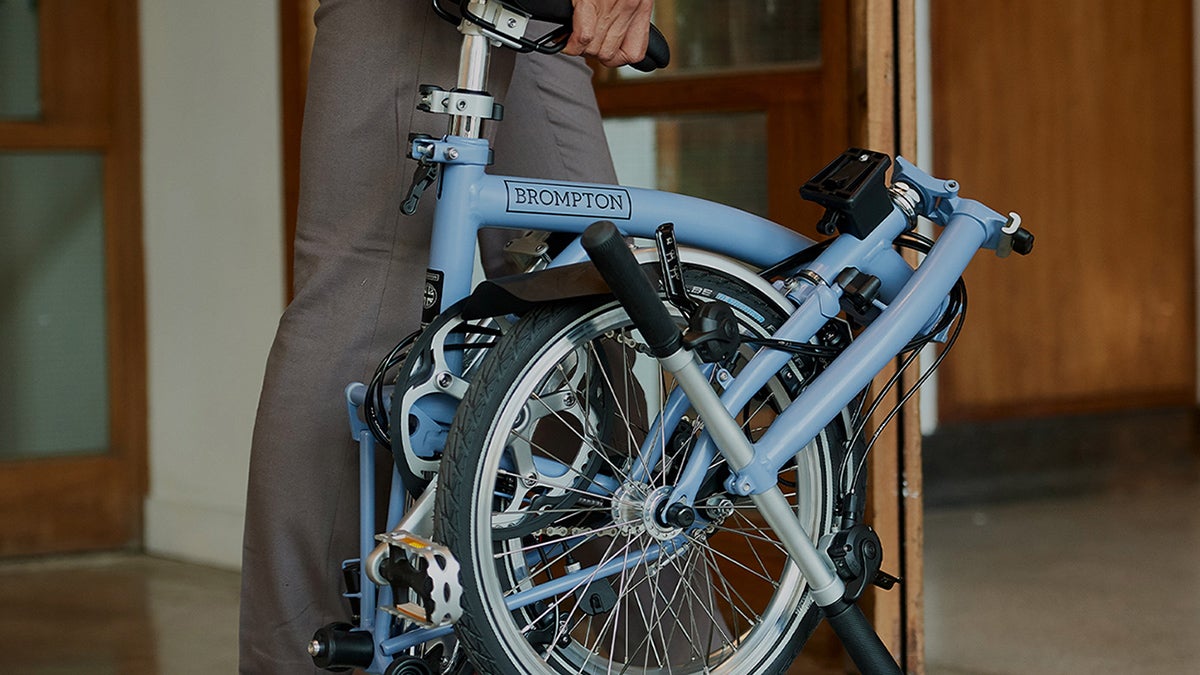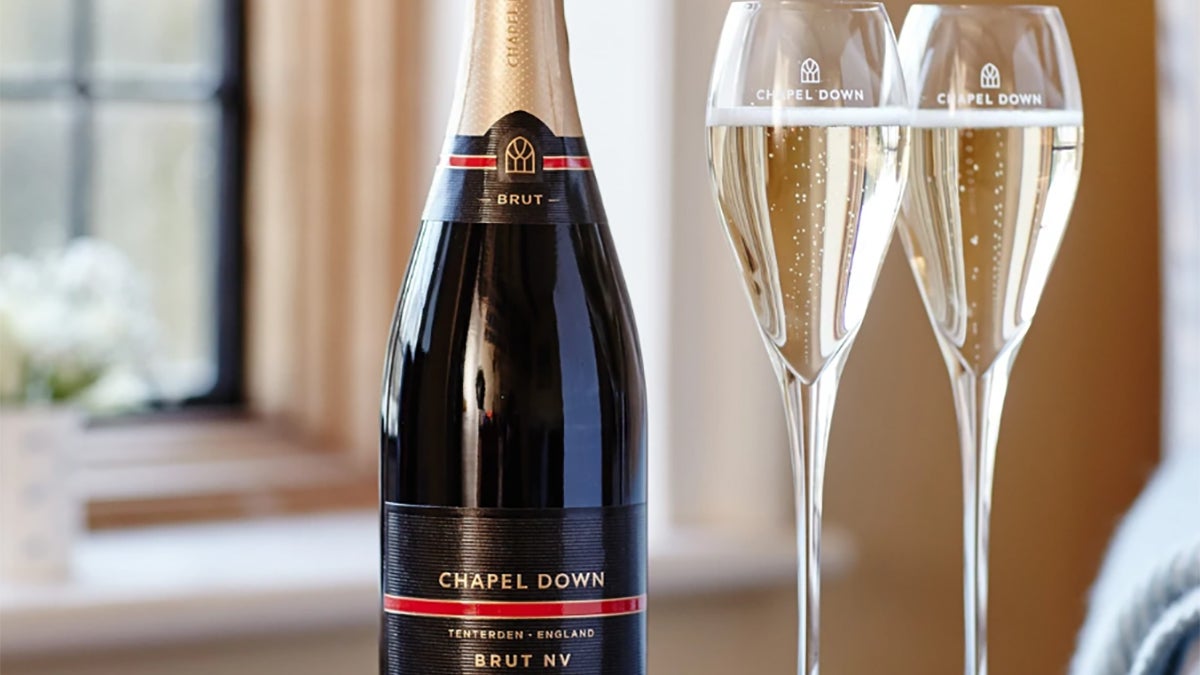
Brompton Bikes’ ‘go, go, go’ overseas expansion strategy
Fast becoming one of Britain’s great exporting success stories, the tale of how the west London folding bike-maker Brompton went global is down, it seems, to serendipity. Its first export market was built by the passion of people who bought the bike when they lived in London, according to CEO Will Butler-Adams, and then took it – along with the lifestyle – home with them. That’s how the firm’s first overseas business began in places like Holland and Germany.
When Butler-Adams took over Brompton in 2008 it was making 6,000 bikes a year. He said they would get that to 25,000. “It was clear we couldn’t do that in the UK alone,” he says. “We knew enough from the experience that we had in the Netherlands and Germany that this bike that Andrew [Richie] had created was relevant to different cities. It wasn’t just a London thing.”
Armed with that insight Butler-Adams got airborne, visiting places where he thought “this bike could do OK”. Don’t overthink it, he advises, don’t waste time on elaborate plans and strategies – just fly economy and “go, go, go”. Talk to people, have meetings. Listen. Then come back and if you still think it could work, then invest time and effort fleshing out a plan.
This, broadly, is what Brompton did across the world, building businesses with sole distributors operating in dozens of territories – people they believed with the passion to build the brand in each market. “The first phase was to get on a plane and travel,” says Butler-Adams.
The second phase was to bring the distribution in-house: “Eventually we wanted to grow faster than they [the distributors] could.” So from around 2005, Brompton began buying out the distributors, and working directly with retailers in markets – a model now established in more than 16 territories, including Japan (“A real test for us,” says the CEO).
The firm went to mainland China in 2010 and now sells around 15,000 bikes there, through a franchise partner, partly to keep investment costs down. In the US, Brompton is using its own store network. In Germany, the firm works with the existing retail network.
Fully 75% of the 100,000 bikes that the firm makes in Greenford are exported to some 48 countries worldwide – but Butler-Adams is clear that’s not good enough. “Look at the markets we’re in,” he says. “The UK should be 3% [of sales] not 25% on a pro rata basis.”
His new goal is for sales in Germany, China and the US to exceed UK levels within five years. That’s driven by autonomous boards with non-executive chairman in each territory to galvanise growth. Look at what Dyson achieved, building a multi-billion-pound business sucking dust off the floor. “This product is just as relevant to society and a lot more fun,” Butler-Adams says. “We can get to a billion.”
Ettinger on ‘getting its name out there’ in the US
When Robert Ettinger joined the family business, the luxury leather goods manufacturer Ettinger, in 1990, he packed his suitcase and flew to New York. Having made some appointments in advance, he nonetheless found himself pounding the streets, samples in hand, knocking on doors. “It was hard but it worked for us in the end,” he recalls.
Thirty years on, the US market, in which the royal warrant-holder’s products are available at some 60 outlets, accounts for around 10% of the firm’s revenues.
“Although they speak English and you’d think it would be an easy market to move into, it’s not,” Ettinger says. “We’ve really worked hard at it; we connected closely with them. Now it’s the fastest-growing market in the world for us.”
As well as heading over there once or twice a year, Ettinger’s team keep in close contact with their US customers by regular telephone and Zoom calls. With bigger clients the firm also provides special collections of ‘dual-branded’ items with distinctive leather colours which are therefore exclusive to those brands.
Embassies have staff who will assist in selling and even help find retailers or sole distributors. Go on a trade mission. You need some help to start and the government has very good ways of doing this
They’ve also engaged a New York-based PR firm and advertise there. “You just have to get the name out there in America and keep on shouting,” he says.
For Robert Ettinger, whose grandfather founded the firm in the UK in 1934, this international outlook is in the blood. “We’ve always been keen travellers as a family,” he explains. In the 1960s, his father took the brand to Japan, “before almost anyone was over there selling our sort of product or any luxury product there”. Today Japan is Ettinger’s biggest global market, accounting for 12% of all sales, and through its sole distributor, whom Robert began working with 25 years ago, the brand has two standalone stores in Tokyo.
Outside Japan and Korea, where Ettinger also has a distributor in place, the firm sells directly to retailers, including across mainland China, which it entered in 2014 and where Robert believes could be bigger than the US or Japan. The biggest sales outlet for the brand now, however, is its website through which it commands nearly 30% of all sales – and these go anywhere in the world. In all, 90% of the luxury goods made in the firm’s Birmingham factory are exported.
The crucial thing, Ettinger says, is not to be daunted by the task: “Do your research,” he says. “Embassies have staff who will assist in selling and even help find retailers or sole distributors. Go on a trade mission. You need some help to start and the government has very good ways of doing this.”
Chapel Down takes a ‘key cities’ approach to expansion

For the English winemaker Chapel Down, exports are still relatively small beer – after all, it’s been the work of the past 20 years to crack the UK market and change consumer attitudes here. But having been served at Buckingham Palace and 10 Downing Street, and with distribution established in the likes of Waitrose, Marks & Sparks and Sainsbury’s, it’s clear that this is one English sparkling wine producer that has found its feet.
Yet while Kent-based Chapel Down is still eyeing up domestic growth – the chief marketing officer Mark Harvey says English producers supply around 4.5 million of the 200 million bottles of fizz Britain guzzles each year, compared to around 20 million coming from Champagne – attractions abound from growing its global footprint.
The first benefit, of course, is the prospect of additional sales. So Chapel Down is targeting the 10 biggest champagne-buying markets in the world, the biggest being America.
“The biggest opportunity for us all in English sparkling as a category is the US,” Harvey explains, noting that it’s also somewhere that ‘brand Britain’ plays well. “The early traction when we started to export before Covid was strong and it’s really starting to pick up again now that most of the restrictions have been lifted. I think long term the US is the interesting market where we can scale up.”
Chapel Down began working in the US in earnest in 2017 and does so by approaching wine opinion-formers – sommeliers at super-premium and luxury bars, restaurants and hotels, and independent wine dealers, in key cities. In concert, Chapel Down pitches its vintage Three Graces traditional method sparkling wine, selling it at the same price as the main French Champagne houses sell their non-vintage product.
“That approach really clicked,” Harvey says, noting that the US now accounts for half of exports. “Sommeliers are interested in the fact that it’s from a relatively new wine-growing region – so they’re engaged in the story – and in terms of the proposition for their customers, that’s bang for your buck.”
The rest of the world is still perhaps 15 years behind Britain on its appreciation of English sparkling wine, believes Harvey, so there’s a massive untapped market. As a result, Chapel Down aims to make exports a tidy 5% of its sales by 2026.
The key, says the marketing chief, is to remain focused on key cities and build there – thereby avoiding the trap of low volumes in too many markets. The international approach will also reap other rewards.
“Having listings in high-profile accounts in key cities around the world is powerful,” Harvey says. “A lot of our customers will travel and to see Chapel Down in top restaurants in New York, California or Hong Kong is all positive for the brand.”

Brompton Bikes' 'go, go, go' overseas expansion strategy
Fast becoming one of Britain’s great exporting success stories, the tale of how the west London folding bike-maker Brompton went global is down, it seems, to serendipity. Its first export market was built by the passion of people who bought the bike when they lived in London, according to CEO Will Butler-Adams, and then took it – along with the lifestyle – home with them. That’s how the firm’s first overseas business began in places like Holland and Germany.
When Butler-Adams took over Brompton in 2008 it was making 6,000 bikes a year. He said they would get that to 25,000. “It was clear we couldn’t do that in the UK alone,” he says. “We knew enough from the experience that we had in the Netherlands and Germany that this bike that Andrew [Richie] had created was relevant to different cities. It wasn’t just a London thing.”
